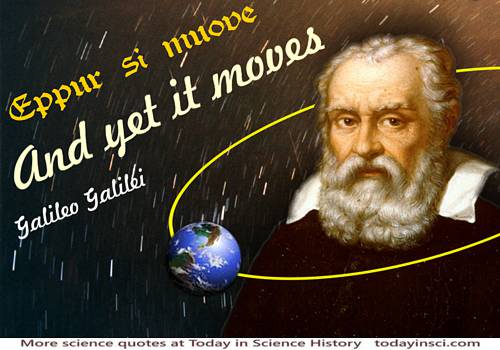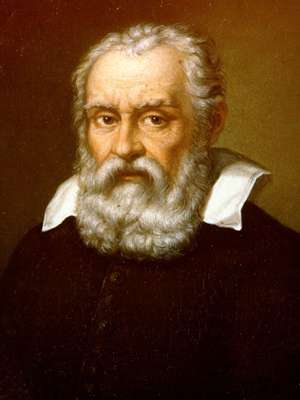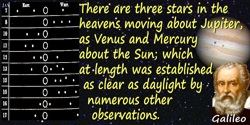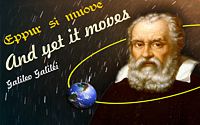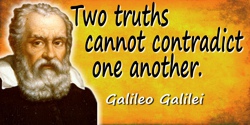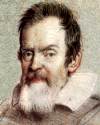 (source)
(source)
|
Galileo Galilei
(15 Feb 1564 - 8 Jan 1642)
Italian natural philosopher who believed the Earth revolved around the Sun. For this, he was interrogated by the Inquisition, was put on trial, found guilty and sentenced to indefinite imprisonment. For renouncing his former beliefs before the Cardinals that judged him, he was allowed to serve this time instead under house-arrest.
|
Galileo Galilei - Abjuration
22 Jun 1633
“And yet it moves... Did Galileo really say it? >>
In Galileo's Inquisition Trial Revisited, Jules Speller quotes Scaglia that the ceremony of abjuration means declaring “that one never has had an uncatholic intention, and that one desires to live and die as a Catholic.” To this Speller explains, in his own words that, “an abjuration consists in reciting a wholly standardized text,” which for the Tribunal “is purely routine,” regarded by the Church as “merely an act of humility.” Thus the abjuration is “the indispensible act by which any convicted or else suspected heretic ceases to be one and is again admitted into the Church. ... It is this a condition for the culprit to be allowed to hope again for the highest good of a Christian, ‘eternal life.’”1
After he died, and to the present day, Galileo has remained a cause celebre. Early biographers expanded what facts were known with their own interpretations, which were then recirculated and further embellished by later writers. One possible or probable fabrication that has endured for centuries is the idea that as Galileo rose from his knees after reciting the abjuration, he whispered under his breath the phrase, “E pur si muove,” (It moves, nevertheless) indicating he still believed that the Earth is the body that moves around the Sun. Since he certainly would not have wanted those attending his abjuration to have heard such a sentiment, it remains unclear how such an utterance could have been witnessed for history.
The Vatican took more than 350 years to rectify the injustice, but on 31 Oct 1992, after years of study by a commission, Galileo was finally rehabilitated. Pope John Paul delivered a speech to bring religious faith and scientific truth back into harmony.
Here is the text that Galileo recited centuries before:
“I, Galileo Galilei, son of the late Vincenzo Galilei, of Florence, aged seventy years, being brought personally to judgment, and kneeling before your Most Eminent and Most Reverend Lords Cardinals, General Inquisitors of the universal Christian republic against heretical depravity, having before my eyes the Holy Gospels, which I touch with my own hands, swear that I have always believed, and now believe, and with the help of God will in future believe, every article which the Holy Catholic and Apostolic Church of Rome holds, teaches, and preaches. But because I have been enjoined by this Holy Office altogether to abandon the false opinion which maintains that the sun is the centre and immovable, and forbidden to hold, defend, or teach the said false doctrine in any manner, and after it hath been signified to me that the said doctrine is repugnant with the Holy Scripture, I have written and printed a book, in which I treat of the same doctrine now condemned, and adduce reasons with great force in support of the same, without giving any solution, and therefore have been judged grievously suspected of heresy; that is to say, that I held and believed that the sun is the centre of the universe and is immovable, and that the earth is not the centre and is movable; willing, therefore, to remove from the minds of your Eminences, and of every Catholic Christian, this vehement suspicion rightfully entertained toward me, with a sincere heart and unfeigned faith, I abjure, curse, and detest the said errors and heresies, and generally every other error and sect contrary to Holy Church; and I swear that I will never more in future say or assert anything verbally, or in writing, which may give rise to a similar suspicion of me; but if I shall know any heretic, or anyone suspected of heresy, that I will denounce him to this Holy Office, or to the Inquisitor or Ordinary of the place where I may be; I swear, moreover, and promise, that I will fulfil and observe fully, all the penances which have been or shall be laid on me by this Holy Office. But if it shall happen that I violate any of my said promises, oaths, and protestations (which God avert!), I subject myself to all the pains and punishments which have been decreed and promulgated by the sacred canons, and other general and particular constitutions, against delinquents of this description. So may God help me, and his Holy Gospels which I touch with my own hands. I, the above-named Galileo Galilei, have abjured, sworn, promised, and bound myself as above, and in witness thereof with my own hand have subscribed this present writing of my abjuration, which I have recited word for word. At Rome, in the Convent of Minerva, June 22, 1633. I, Galileo Galilei, have abjured as above with my own hand.”
1 Jules Speller, Galileo's Inquisition Trial Revisited (2008), 343-345.
- Science Quotes by Galileo Galilei.
- 15 Feb - short biography, births, deaths and events on date of Galilei's birth.
- Galileo Gailei - biography from Famous Men of Science (1889).
- Galileo - “And Yet It Moves” illustrated quote - Medium 500px
- Galileo - “And Yet It Moves” illustrated quote - Large 800px
- Galileo: A Life, by James Reston. - book suggestion.
- Booklist for Galileo Galilei.
